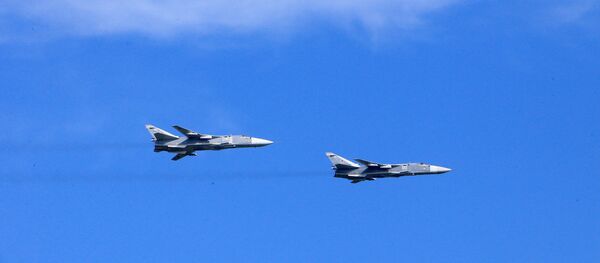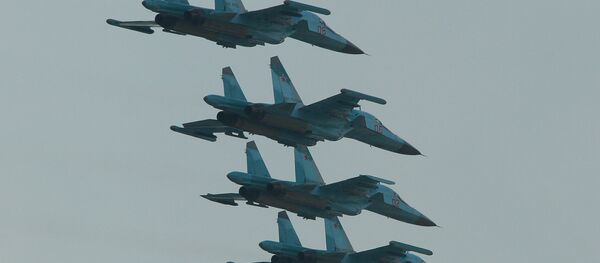Washington's belligerent remarks, including calling Russia, Ebola and ISIL America's greatest threats, and branding Moscow as an "existential" or "very-very significant" threat, pushes things dangerously closer to direct confrontation, US author and syndicated columnist Stephen Lendman warns.
"Claims about potential Russian aggression or other hostile acts are fabricated rubbish. Fear-mongering is a longstanding US tactic — a pretext to rev up military spending, enlist more allies in its war machine, and divert public attention from what matters most domestically: ending austerity, creating quality full-time jobs and governance serving everyone equitably," Lendman elaborated in his article for Global Research.
Lendman cited Russian President Vladimir Putin, known for his pragmatic and realpolitik approach. "I think that only an insane person, and only in a dream, can imagine that Russia would suddenly attack NATO," the Russian President underscored in June, pointing to the obvious fact that the Pentagon maintains hundreds of military bases across the world while Russia "has virtually no bases abroad."
Incredible as it may seem, Rand Corp. strategist/former US Defense Department official David Ochmanek even went so far as to claim that Russia "outnumber(s) all US and NATO troops (combined) 2-1 in terms of manpower." "We are unable to defend the Baltics," Ochmanek said, as quoted by Lendman.
The reports of recent the US and NATO's decision to modernize its nuclear arsenal in Europe, deploying new B61-12 atomic weaponry in Belgium and Germany, have only added fuel to the fire.
Citing Deputy Defense Minister Anatoly Antonov, Lendman pointed out that NATO is provoking Moscow into an "arms race."
What is the root cause of the US' provocative behavior?
"Longstanding US policy calls for regime change in all sovereign independent countries — by color revolutions or wars, notably targeting Russia, China, Iran and Venezuela, to eliminate major rivals and control world resources, especially oil. The Pentagon maintains war plans against all targeted countries, updating them as needed, ready to act if ordered — risking potential global war," the US author elaborated.



